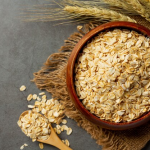What is stomach cancer?
Stomach cancer usually starts in the cells that line the entire stomach and are responsible for producing mucus. This type of cancer is called adenocarcinoma. Most stomach cancers are of this cancer type.
In the last few decades, cancer rates in the body of the stomach have started to decline worldwide. Over the same period, cancer in the area where the upper part of the stomach meets the lower part of the esophagus has become much more common. Cancer growing in this area of the stomach is called gastroesophageal junction cancer.
What are the Risk Factors for Stomach Cancer?
Stomach cancer risks include many factors, including age and lifestyle. Anything that can increase your risk of cancer is called a risk factor. Those that lower that risk are called protective factors. Of course, having one or more risk factors does not always mean you will get stomach cancer.
Helicobacter Pylori Infection
H. pylori is a bacterium that lives in the mucous membrane of the stomach lining. Helicobacter pylori causes infection in the area where it settles and is the cause of 40 percent of stomach cancers. Most H. pylori infections do not cause cancer, but in some cases long-term infection leads to inflammation and stomach ulcers. Helicobacter infection can be detected through blood, stool and saliva tests. Treatment usually involves a mixture of antibiotics to reduce the amount of acid in the stomach.
Age and gender
Stomach cancer is more common in the elderly, and more than half of patients with stomach cancer are aged 75 and over. Men are more likely to develop the disease than women.
Smoking
Using tobacco and tobacco products increases the risk of stomach cancer. About 1 in 5 stomach cancers is associated with smoking.
Salt
Consuming foods high in salt can increase the risk of stomach cancer. Adults should consume no more than one teaspoon of salt a day. Bread, cereals and ready meals can provide most of the daily salt intake. Extra salt can invite stomach cancer.
Meat
There is a link between stomach cancer and processed meat. Ham, bacon, salami and sausage are harmful processed meat products. It has been proven that people who consume more than 90 g of red and processed meat a day have a higher risk of developing cancer than others.
Being overweight or obese
Being overweight or obese increases the risk of stomach cancer. Obesity means having a body mass index of 30 or more. Trying to maintain a healthy weight by being active and eating a healthy diet helps reduce the risk of stomach cancer.
Alcohol
People who drink 3 or more glasses of alcohol a day have a higher risk of developing stomach cancer than those who drink occasionally or not at all.
Work Chemicals
Some occupational groups and working with certain chemicals as a requirement of these occupations may increase the risk of stomach cancer. For example, working in the rubber manufacturing industry leads to exposure to asbestos and inorganic lead compounds, and their association with stomach cancer has been seen in some limited studies.
Cancer and Radiotherapy Treatment History
If you have had cancer before and have had radiotherapy for cancer treatment, your risk of stomach cancer may increase.
Stomach Cancer Symptoms
Signs and symptoms of gastroesophageal junction cancer and adenocarcinoma-type stomach cancer include
- Fatigue
- Stomach cancer causes blockages in the stomach, which negatively affects the digestive system and can make you feel tired and sluggish all the time.
- Excessive bloating after eating
Feeling full quickly even when eating small portions
Unwanted weight loss
It is important to be checked by a doctor if you have unexplained weight loss and unusual symptoms.
Difficulty swallowing
If there is severe pain or a burning sensation when swallowing, or if food often sticks in the throat, it is important to share this symptom with the doctor, along with other signs of stomach cancer.
Severe pain
Stomach cancer can cause severe pain in the upper abdomen and behind the breastbone (sternum). These pains may appear and disappear at regular intervals. If body aches and pains are not due to inactivity or incorrect sitting or posture, they should be taken into account and a specialist should be consulted for pain complaints.
Persistent indigestion (dyspepsia) and heartburn
Indigestion is common and not usually caused by cancer, but prolonged indigestion and heartburn can be painful. If you have had 3 or more weeks of indigestion symptoms such as heartburn with belching and gas and abdominal bloating, you may need to see a specialist.
Constant vomiting and blood in the vomit
Unexplained nausea and excessive vomiting are common, especially if the stomach cancer is advanced. Blood is rarely found in the vomit and can be difficult to detect if it is trace amounts. This blood is usually bright red and the bright color indicates that the blood is fresh and has recently occurred. If the blood in the vomit is brown, the blood has been in the stomach for a long time.
Anemia
Advanced stomach cancer can cause bleeding in the stomach. Over time, this reduces the number of red blood cells in your blood. Reduced red blood cells cause anemia (anemia).
Dark stools (blood in the stool)
Stools may become darker or even almost black due to gastric bleeding caused by stomach cancer. Dark stools should be considered in the differential diagnosis if the person is taking iron tablets…..
= =Page content is for informational purposes only. Please consult your doctor for diagnosis and treatment.









